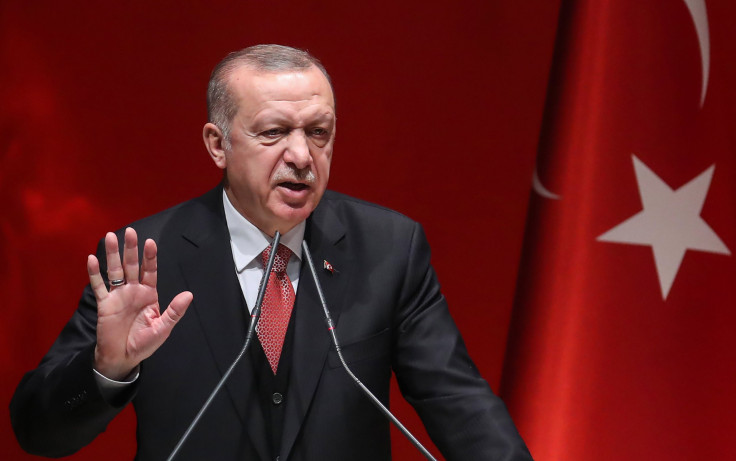Turkey Begins Military Operation Against Kurds After Trump Pulls Troops In Northern Syria

Turkish President Recep Erdogan announced Wednesday that Turkish Armed Forces would begin a military operation against Kurdish groups in northern Syria. After about six hours of airstrikes in northeastern Syria, Turkish troops and their Syrian rebel allies began a ground offensive in territories held by Kurdish-held forces, according to the New York Times and other outlets.
The intervention, called Operation Peace Spring, was launched shortly after President Donald Trump announced the withdrawal of U.S. troops from the area. There has been bipartisan opposition to Trump's surprise decision, which has left vulnerable the Syrian Kurdish fighters, who helped the U.S. against the Islamic State of Syria (ISIS).
The Kurdish fighters include the People's Protection Units, also known as the YPG, and the Kurdistan Workers' Party, also known as the PKK. The YPG has led a military alliance called the Syrian Democratic Forces (SDF), which was backed by U.S. forces in the fight against ISIS.
The Turkish Armed Forces, together with the Syrian National Army, just launched #OperationPeaceSpring against PKK/YPG and Daesh terrorists in northern Syria. Our mission is to prevent the creation of a terror corridor across our southern border, and to bring peace to the area.
— Recep Tayyip Erdoğan (@RTErdogan) October 9, 2019
Mustafa Bali, a spokesman for the SDF, said that "Turkish warplanes have started to carry out airstrikes on civilian areas. There is a huge panic among people in the region."
Turkish warplanes have started to carry out airstrikes on civilian areas. There is a huge panic among people of the region.
— Mustafa Bali (@mustefabali) October 9, 2019
Trump made the decision to withdraw after a call with Erdogan, and reportedly had not consulted the Pentagon or the State Department on the matter. Trump believes that withdrawing the troops would keep a campaign promise ahead of the 2020 elections.
"We can't abandon the Kurds now," Republican Sen. Lindsay Graham of North Carolina said on the issue, saying that he would urge Trump to change course. "We can't turn it over to Turkey. To think that will work is really delusional and dangerous."
Speaker of the House Rep. Nancy Pelosi, D-Calif., said Trump was deserting the Kurds "in a foolish attempt to appease an authoritarian strongman."
There have been conflicting policy comments from the Trump administration, adding confusion to the conflict. On Sunday, Trump pulled 1,000 U.S. troops, while the White House confirmed in a statement that the troops would "not support or be involved in the operation.” Trump on Tuesday said that "in no way have we abandoned the Kurds," and on Wednesday firmly opposed the Turkish military operation hours after it began. Trump also threatened to "obliterate" Turkey's economy if it went "off limits."
For Turkey, the operation is considered a matter of security as it does not want Kurdish groups to be able to launch attacks over the Turkish border. The YPG maintains some ties with the PKK, and the PKK has been involved in armed conflicts with the Turkish state since 1984, as the organization has sought Kurdish autonomy in the country. A spokesperson for Erdogan said the operation is intended to "correct the demographics" of northern Syria.
The decades-long Turkish-Kurdish conflict has killed almost 40,000 people. One of the founders of the PKK, Abdullah Ocalan, has been in a Turkish prison since 1999.
Operation Peace Spring is Turkey's third military intervention in Syria.
Turkey previously conducted Operation Olive Branch in January 2018, with Turkish forces moving into the northern Syrian city of Afrin to clear out Kurdish groups. Turkey's first military incursion into northern Syria was in 2016 in Operation Euphrates Shield.
© Copyright IBTimes 2025. All rights reserved.




















